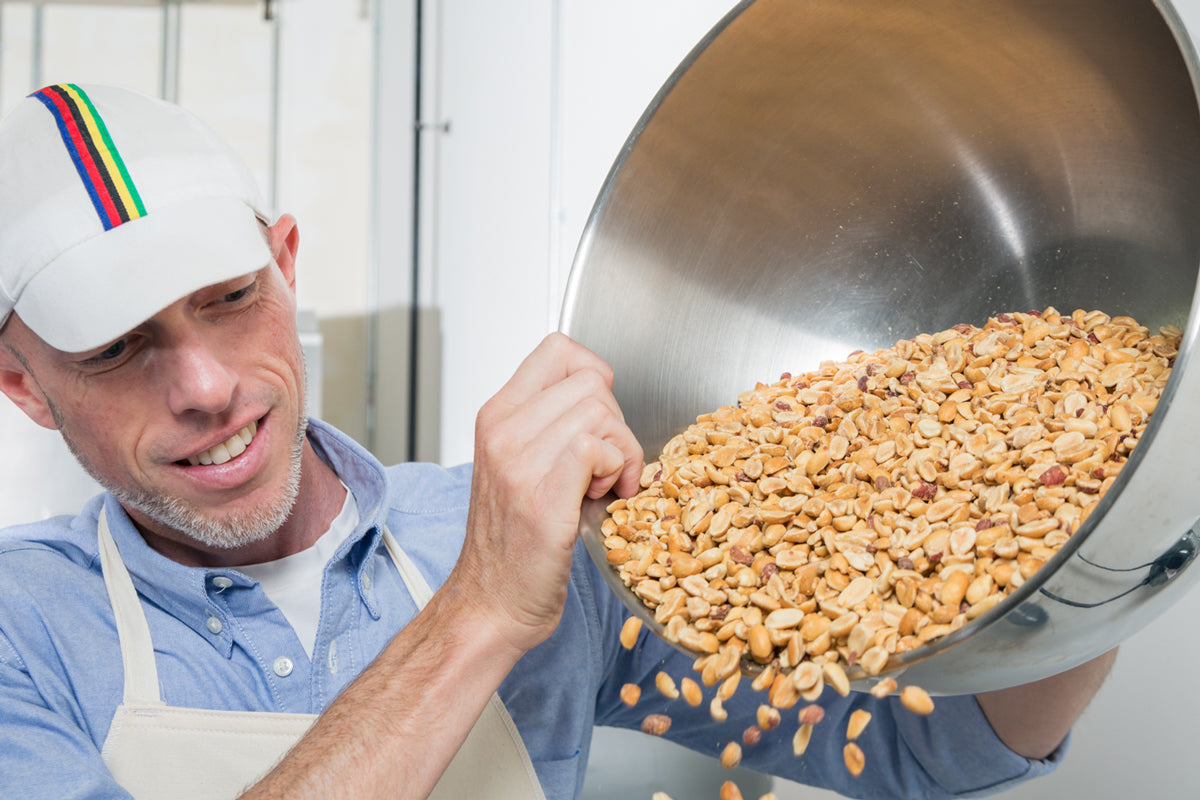
BIG SPOON ROASTERS MAKES HANDCRAFTED NUT BUTTERS AND SNACK BARS FROM SCRATCH WITH WORLD-CLASS INGREDIENTS SOURCED DIRECTLY FROM LOCAL AND LIKE-MINDED PRODUCERS WHO SHARE OUR DEDICATION TO AUTHENTIC QUALITY AND SUSTAINABILITY. WE BELIEVE THAT OUR FOOD CHOICES MATTER, AND OUR MISSION IS TO BUILD A HEALTHIER RELATIONSHIP WITH OUR PLANET THROUGH DELICIOUS, NUTRITIOUS FOODS MADE WITHOUT COMPROMISE.
OUR STORY
A lifelong peanut butter lover, our co-founder Mark Overbay first made his own in 1999 while living in a rural farming community in Zimbabwe as a Peace Corps Volunteer. After harvest, community members roasted peanuts over open fires and pounded them with stones into a thick paste, usually added to savory dishes...






